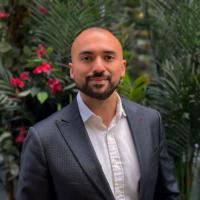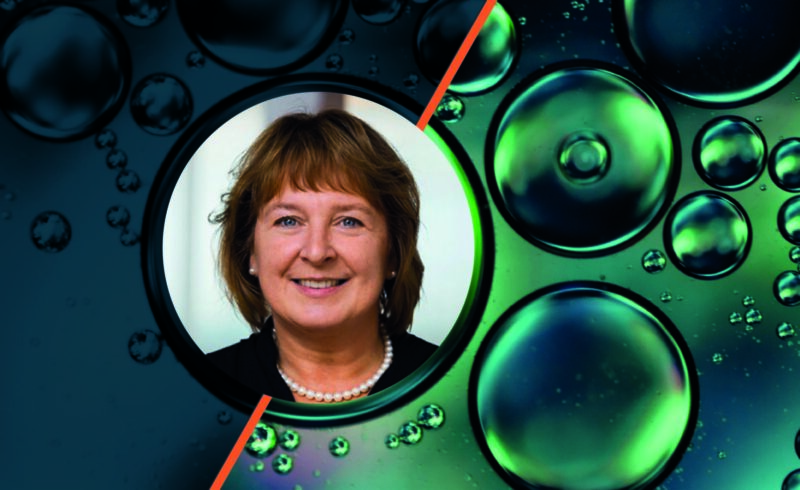For our next article as part of our series, Board-Level Insights: Women in Chemical & Materials Industry Leadership, we spoke to Katarina Lindstrom.
Katarina Lindstrom, a RHI Magnesita Non executive director and former COO of Hempel A/S, discusses strategies and challenges faced when trying to achieve diversity and inclusion (DEI) targets as an organisation.
In this article we share 7 pieces of advice Katarina discussed, drawing from her extensive experience as a woman working at leadership level within the Chemicals industry.
1. Set Ambitious, Measurable Targets for Accountability
For any organisation aiming to build a more diverse workforce, clear and ambitious targets are essential. Katarina emphasised the importance of setting specific goals, such as gender diversity in leadership roles, to ensure that DEI becomes an organisational priority.
One organisation Katarina referenced committed to achieving 30% female representation across leadership and other key roles. Katarina noted that it goes beyond just setting a target, and organisations should link their targets to incentives. This not only helps drive accountability but also motivates leaders to meet these expectations.
"Setting specific goals ensures DEI becomes an organisational priority, while linking targets to incentives helps drive accountability.”"
2. Leadership Commitment: The Catalyst for Change
Katarina stressed that commitment from top leadership is the most significant driver of successful DEI initiatives. She shared the example of a CEO who made a personal commitment to DEI by engaging with female employees to understand the barriers they face. This direct involvement led to the creation of concrete action plans that were shaped by the voices of the female workforce.
“Leadership commitment, especially when personal, creates a ripple effect across the organisation, turning insights into actionable plans.”
Katarina also emphasised the importance of CEOs taking risks by elevating unconventional candidates. While some may fail, there is always something to learn. Fear of failure can often lead to playing it safe, however, encouraging a mindset of learning from mistakes allows large organisations to take more risks, especially in areas like diversity and inclusion, ultimately leading to long-term growth and improvement.
To demonstrate this, Katarina shared an experience of being promoted. Despite lacking some of the specific skills in the area, she was chosen, marking a turning point in her career. This taught her the value of leaders being brave enough to promote people who haven’t followed traditional paths.
3. Implement Practical Policies that Support Inclusion
Katarina explained that practical policies supporting work-life balance and inclusion are essential for ensuring diversity efforts succeed. At Hempel A/S, policies like equitable parental leave and flexible working arrangements were implemented to support women and other underrepresented groups. These policies helped retain talent in regions where workplace policies were historically less supportive of work-life balance.
Katarina also shared an example of a time when an organisation discovered women were leaving because other employers offered longer maternity leave. However, many returned after maternity leave and when their children were older. To address this, the organisation ensured a guaranteed minimum level of maternity, paternity, and parental leave. This policy also considered same-gender couples, reflecting a broader commitment to diversity.
4. Address Resistance and Unconscious Bias
One challenge that organisations must address is resistance to DEI initiatives, particularly in regions or industries that have been slower to adopt these changes. This often involves overcoming unconscious bias and ensuring that leaders and employees are educated about the benefits of diversity.
Katarina shared that, when getting buy-in to new DEI initiatives, having open dialogue and educating others about historical imbalances helps shift perspectives, making the workplace more inclusive.
"Addressing resistance through education and dialogue helps shift perspectives and break down barriers."
Katarina also highlighted the importance of gender diversity in recruitment. She emphasised that during the hiring process, it is essential to include at least one highly qualified female candidate for every role. This approach needs to be consistently followed, particularly across an organisation’s people and culture, to ensure diverse perspectives.
Katarina and her leadership team committed to this strategy, setting clear targets for female candidates, which helped drive progress. Katarina also pointed out, however, that many executive recruitment firms remain conservative. She recalled a specific example from her experience on a board where female candidates were included on a long list for a CEO role but were placed at the bottom – highlighting the challenges of overcoming bias in executive recruitment.
5. Diversity Must Include More Than Gender
While gender diversity is often the focus, Katarina highlighted the importance of widening the DEI lens to include other underrepresented groups.
At Hempel A/S, the company made efforts to address LGBTQ+ inclusion. This included raising the Pride flag and opening discussions around sexual orientation and gender identity, even in regions where these conversations were more challenging. This public commitment helped foster a more inclusive environment.
“We raised the Pride flag despite resistance from certain regions. It was a clear message of inclusion, and it encouraged employees to feel safe and express their true selves at work.”
6. Invest in Long-Term Talent Development
In Katarina’s experience, women selected for top positions often had stronger qualifications and deeper experience than many male candidates. She stressed that recruitment isn’t just about gender; it’s about qualifications, which can include interpersonal skills, team building, and the ability to connect people across boundaries.
Katarina added that diverse skills are essential in building management teams, and it’s crucial to fill gaps in the team’s capabilities. In her own experience, she has often been the “connector” in teams that were otherwise highly competitive and individualistic, traits common at the top level of management. However, she sees this changing gradually.
Katarina also emphasised the importance of creating a pipeline of diverse talent for future leadership.
"One strategy we used was ensuring that at least one highly qualified female candidate was on every leadership shortlist. This focus helped us identify and develop female leaders from within."
By implementing mentorship programmes and ensuring women were present in recruitment shortlists for leadership roles, RHI Magnesita worked towards ensuring that diverse talent had a pathway to senior roles, especially in traditionally male-dominated sectors like manufacturing and operations.
7. DEI is a Dual Responsibility
Katarina stressed that women need to be proactive in their careers by clearly expressing their ambitions, demonstrating their capabilities, and taking initiative. She sees it as a dual responsibility:
- Leaders should provide opportunities
- Women also need to step up and pursue opportunities
While doors can be opened, women must be willing to walk through them. She highlighted the tendency for men to apply for jobs when meeting some of the qualifications, whereas women often wait until they feel 100% qualified. Finally, Katarina added that women should be more willing to take risks and learn from setbacks.
Conclusion: DEI is a Continuous Journey
Katarina’s experience highlights that embedding DEI is a long-term commitment that requires clear targets, leadership buy-in, and practical policies.
Her insights show that while challenges persist, real change is possible when DEI is treated as a strategic priority. As companies in the chemical sector continue to evolve, these lessons offer a blueprint for creating more diverse and inclusive workplaces across the globe.
Proco Group partners with organisations to find sought-after, diverse talent to fill critical roles. For a conversation about your company’s hiring or DEI strategy, please don’t hesitate to get in touch.
Adam Harman
Partner | Industrials | EMEA
T: +447990 306595 E: adam.harman@weareprocogroup.com




